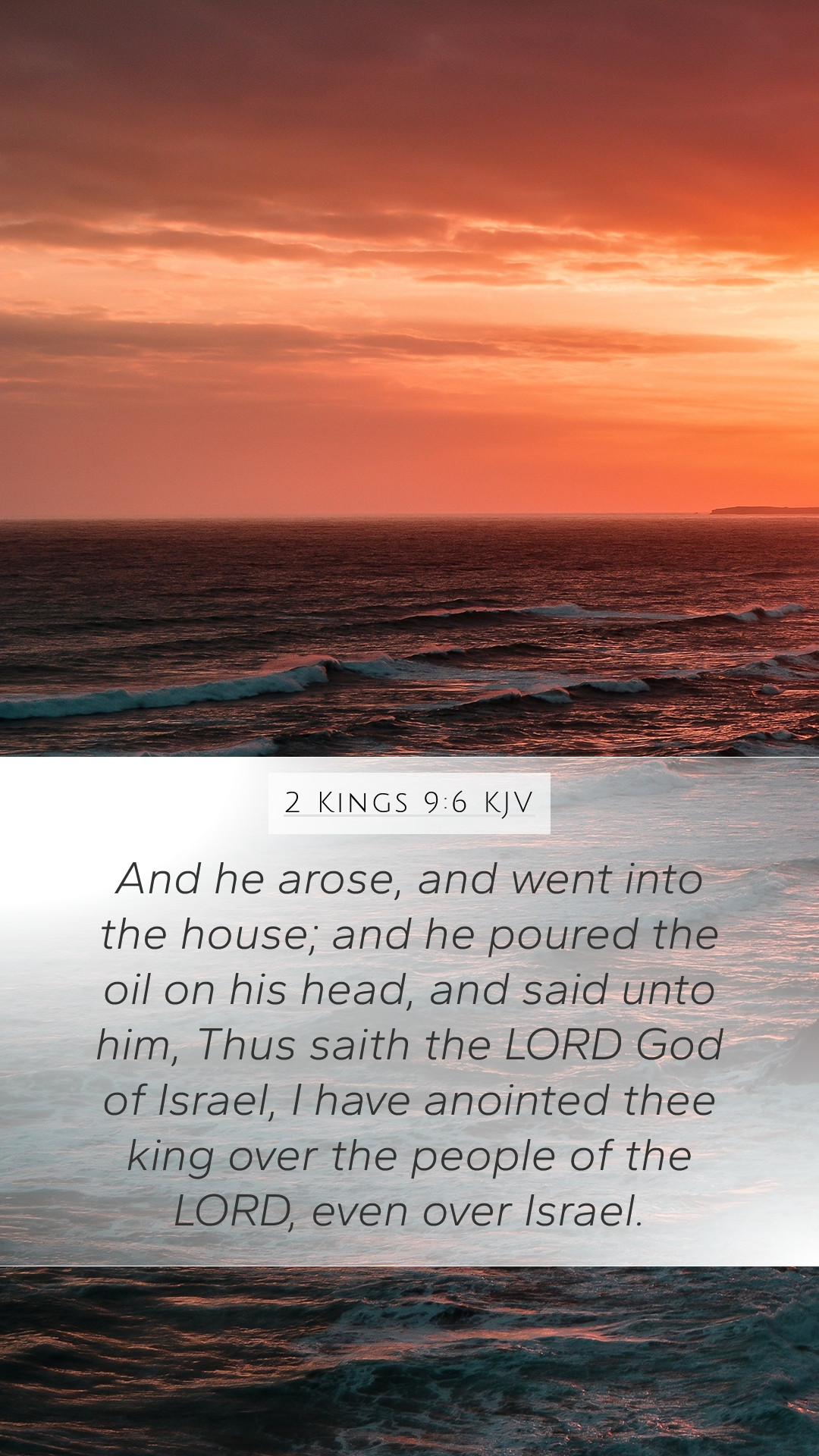Bible Verse Meaning: 2 Kings 9:6
Verse: "So he arose, and went into the house; and he poured the oil upon his head, and said unto him, Thus saith the LORD God of Israel, I have anointed thee king over the people of the LORD, even over Israel." (2 Kings 9:6)
Summary of Insights
The passage of 2 Kings 9:6 highlights a significant moment in the history of Israel, marking the anointing of Jehu as king. This act is not merely a ceremonial procedure but a divine appointment, emphasizing God's sovereignty in establishing leaders. The verse sets a precedent for understanding the role of anointing in the biblical narrative, illustrating God's choice diverging into human affairs.
Key Themes and Interpretations
- Divine Appointment: The anointing signifies that Jehu is chosen by God to fulfill His purpose. God directly communicates His plan through the prophet Elisha, underscoring the importance of divine instruction in leadership.
- Prophetic Authority: This passage illustrates the role of prophets in the Old Testament as intermediaries between God and His people. Elisha’s actions demonstrate that prophecy is often accompanied by tangible actions, such as anointing.
- Israel's Need for Leadership: The anointing of Jehu comes at a time of moral decline in Israel. The act communicates not just a change in leadership but also a divine mandate to restore righteousness.
- Historical Context: Understanding the socio-political climate of Israel during this period helps to comprehend the significance of Jehu’s anointment. The nation faced challenges from both internal corruption and external threats, necessitating strong leadership.
Commentary from Notable Biblical Scholars
Matthew Henry: Henry explains that God’s anointing of Jehu signifies His determination to execute judgment upon the house of Ahab. Jehu’s zealousness and subsequent actions as king fulfill God's justice in dealing with idolatry and immorality in Israel.
Albert Barnes: Barnes emphasizes the necessity for Jehu to abandon the corrupt practices of the previous kings. He notes that this anointing was an act of divine providence, establishing Jehu not merely as a ruler but as an agent of God's vengeance against the wickedness prevalent in Israel.
Adam Clarke: Clarke provides insight into the symbolism of oil in this context, representing the Holy Spirit’s empowerment for the tasks ahead. He stresses that this anointing set Jehu apart for great purposes, and his subsequent actions would determine the course of Israel's future.
Application of the Verse to Daily Life
Understanding this verse encourages believers to consider the implications of God’s sovereignty in their own lives. It highlights the importance of heeding divine guidance in leadership roles and personal responsibilities. Just as Jehu was called to influence Israel's direction, so are individuals called to be agents of change within their communities.
Related Bible Cross References
- 1 Samuel 16:12-13 – Samuel anoints David, showing God’s selection of leaders.
- 2 Kings 9:1-3 – The earlier context of Elisha commissioning a messenger to anoint Jehu.
- 2 Kings 10:30 – God’s approval of Jehu’s actions in eradicating Baal worship.
Additional Resources for Bible Study
For those interested in further exploring the topic of divine leadership and anointing, consider utilizing the following:
- Bible study guides that focus on the role of prophets.
- Online Bible study resources that provide historical context and application discussions.
- Commentaries that delve into the historical narratives of the Old Testament.
Conclusion
2 Kings 9:6 serves as a powerful reminder of God's continual involvement in the affairs of humanity, particularly concerning leadership and moral accountability. The insights drawn from this verse encourage a deeper understanding of scripture and the significance of prophetic actions in biblical history. By studying and applying the lessons from this verse, believers can gain invaluable insights into God's nature and His purposes for their lives.


